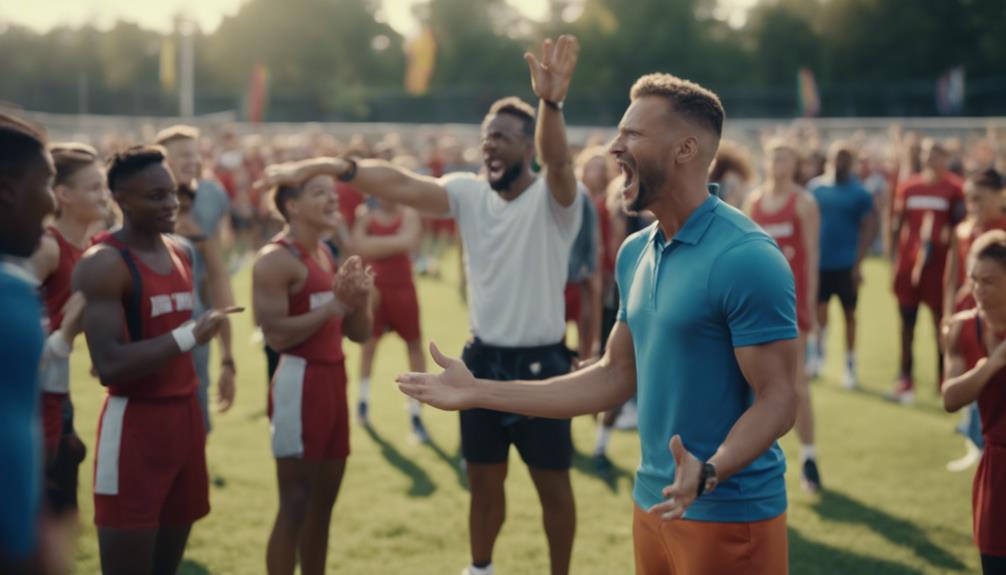Exercising is a vital component of maintaining physical and mental health, but what you do after your workout is equally important. Many individuals overlook the post-exercise phase, which can significantly impact recovery and overall fitness progress. In this article, we will explore the common pitfalls to avoid after exercising, ensuring you maximize the benefits of your hard work in the gym or on the track.
1. Neglecting Hydration: Why Water is Essential Post-Workout
After a workout, your body loses a significant amount of fluid through sweat. Neglecting to rehydrate can lead to dehydration, which adversely affects recovery and can cause fatigue, dizziness, and muscle cramps. Water is crucial for replenishing lost fluids, helping to maintain your body temperature, and facilitating the transportation of nutrients that your muscles need to recover. what is an exercise regressionare plank exercises bad for your back
Furthermore, hydration aids in the removal of toxins accumulated during the workout. Opting for water over sugary drinks or alcohol is paramount, as these can further dehydrate your body. Ensure you drink enough water to replace the fluids lost during your workout; a good rule of thumb is to drink at least 500 mL (about 17 ounces) within 30 minutes of finishing your exercise routine.
2. Skipping Stretching: The Importance of Cooling Down
One of the biggest mistakes post-workout is skipping the cooldown and stretching phase. Stretching helps to gradually lower your heart rate and improves flexibility, reducing the risk of injury in future workouts. Ignoring this crucial step can lead to muscle tightness and discomfort, undermining the benefits of your efforts.
Moreover, cooling down with gentle stretches aids in the recovery process by promoting blood circulation to the muscles, which helps in reducing soreness and stiffness. Incorporating a proper stretching routine post-exercise can enhance performance and keep your muscles limber, making it a vital component of any workout regimen that should never be overlooked.
3. Overindulging: Avoid Heavy Meals Right After Exercise
It can be tempting to reward yourself with a lavish meal after a rigorous workout session, but overindulging can counteract the benefits of your hard work. Consuming heavy meals, especially those high in saturated fats and sugars, can lead to feelings of sluggishness and negate the calorie deficit you may have created through exercise.
Instead, aim for a balanced meal rich in proteins, healthy fats, and carbohydrates within two hours of your workout. This will provide your muscles with the necessary nutrients to repair and grow, while also ensuring you replenish the energy stores that were depleted during exercise. Moderation is key; eating well can enhance recovery without overloading your body.
4. Ignoring Your Body: Listen to Signs of Fatigue and Pain
One of the gravest mistakes you can make after exercising is ignoring your body’s signals. If you experience unusual fatigue or pain, it’s crucial to listen and respond appropriately. Pushing through discomfort can lead to injuries or prolong recovery times, which can set back your fitness goals significantly.
Taking the time to rest and allow your body to heal is essential for long-term success. Recognizing the difference between normal post-exercise fatigue and pain that signifies potential injury is vital. If something feels off, consider consulting a healthcare professional or a fitness coach to ensure you’re taking the right steps toward recovery.
5. Rushing to Shower: Wait to Cool Down Before Cleaning Up
While it might be tempting to jump straight into the shower after a workout, this can be counterproductive. Immediately exposing your body to cold water can shock your system and interfere with the natural cooling down process. Give your body time to gradually return to its resting state before rinsing off.
Moreover, waiting allows your body to continue the recovery processes that need to occur post-exercise. Allowing your heart rate to normalize will not only improve recovery but will also help prevent dizziness that can occur if you rush into a shower too soon after an intense workout.
6. Minimizing Recovery: Don’t Overlook Rest Days and Sleep
Many fitness enthusiasts fall into the trap of thinking that more exercise equals better results, leading to an aversion to rest days. However, neglecting recovery time can hinder muscle repair and growth, ultimately stalling your progress. Incorporating regular rest days into your routine is essential for allowing your body to heal and rejuvenate.
Sleep is another critical component of recovery that is often underestimated. During sleep, your body works to repair muscles and replenish energy stores. Aim for 7-9 hours of quality sleep each night to maximize your recovery efforts. Remember, progress is not solely about the workouts you put in but also about how effectively you recover and rest.
7. Staying Inactive: The Risks of Sitting Too Soon After
After a workout, it may be tempting to plop down on the couch or recline in a chair, but this can be detrimental to your body. Staying inactive for too long can lead to stiffness and hinder muscle recovery. It’s essential to keep moving, even if it’s just light walking, to promote blood flow and reduce the risk of soreness.
Additionally, prolonged sitting can negatively impact your posture and lead to tightness in various muscle groups. Instead, aim to engage in gentle activities like walking or stretching for at least 10 to 15 minutes after your workout to keep your body in motion and facilitate recovery.
8. Forgetting Nutrition: Fueling Your Body for Optimal Recovery
Nutrition plays a pivotal role in recovery, and neglecting to prioritize post-workout nutrition can significantly impede your progress. Your muscles require specific nutrients, particularly protein and carbohydrates, to repair and replenish after exercise. Skipping a nutritious snack or meal can lead to increased muscle soreness and slower recovery times.
Focus on incorporating nutrient-dense foods—such as lean proteins, whole grains, fruits, and vegetables—into your post-workout meals. These foods not only aid in muscle repair but also provide your body with the energy it needs to recover effectively. Planning your post-exercise nutrition in advance can help ensure you are fueling your body appropriately.
In summary, what you do after exercising is just as important as the workout itself. By avoiding common pitfalls such as neglecting hydration, skipping stretching, and ignoring your body’s signals, you can enhance your recovery process and optimize your fitness journey. Prioritizing rest, nutrition, and gentle movement will help you achieve your fitness goals while keeping your body healthy and strong. Remember, the journey to fitness is not a sprint but a marathon—nurture your body, and it will respond in kind.


